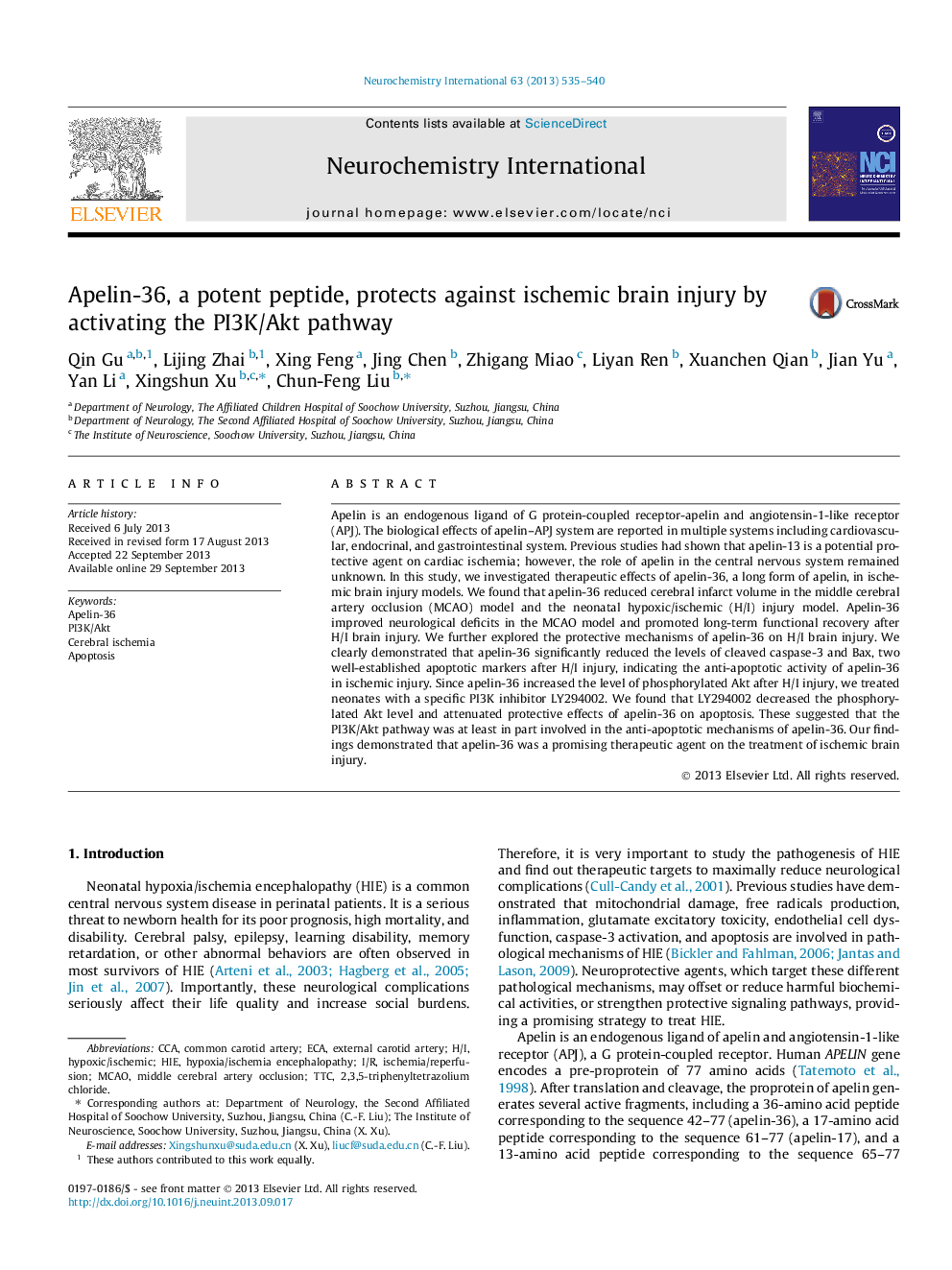| Article ID | Journal | Published Year | Pages | File Type |
|---|---|---|---|---|
| 2200620 | Neurochemistry International | 2013 | 6 Pages |
•Apelin-36 has high potent protection on infarct volume after ischemic brain injury.•Apelin-36 promotes neurological function recovery after ischemic brain injury.•Apelin-36 has anti-apoptotic activity by activating the PI3K/Akt pathway.
Apelin is an endogenous ligand of G protein-coupled receptor-apelin and angiotensin-1-like receptor (APJ). The biological effects of apelin–APJ system are reported in multiple systems including cardiovascular, endocrinal, and gastrointestinal system. Previous studies had shown that apelin-13 is a potential protective agent on cardiac ischemia; however, the role of apelin in the central nervous system remained unknown. In this study, we investigated therapeutic effects of apelin-36, a long form of apelin, in ischemic brain injury models. We found that apelin-36 reduced cerebral infarct volume in the middle cerebral artery occlusion (MCAO) model and the neonatal hypoxic/ischemic (H/I) injury model. Apelin-36 improved neurological deficits in the MCAO model and promoted long-term functional recovery after H/I brain injury. We further explored the protective mechanisms of apelin-36 on H/I brain injury. We clearly demonstrated that apelin-36 significantly reduced the levels of cleaved caspase-3 and Bax, two well-established apoptotic markers after H/I injury, indicating the anti-apoptotic activity of apelin-36 in ischemic injury. Since apelin-36 increased the level of phosphorylated Akt after H/I injury, we treated neonates with a specific PI3K inhibitor LY294002. We found that LY294002 decreased the phosphorylated Akt level and attenuated protective effects of apelin-36 on apoptosis. These suggested that the PI3K/Akt pathway was at least in part involved in the anti-apoptotic mechanisms of apelin-36. Our findings demonstrated that apelin-36 was a promising therapeutic agent on the treatment of ischemic brain injury.
